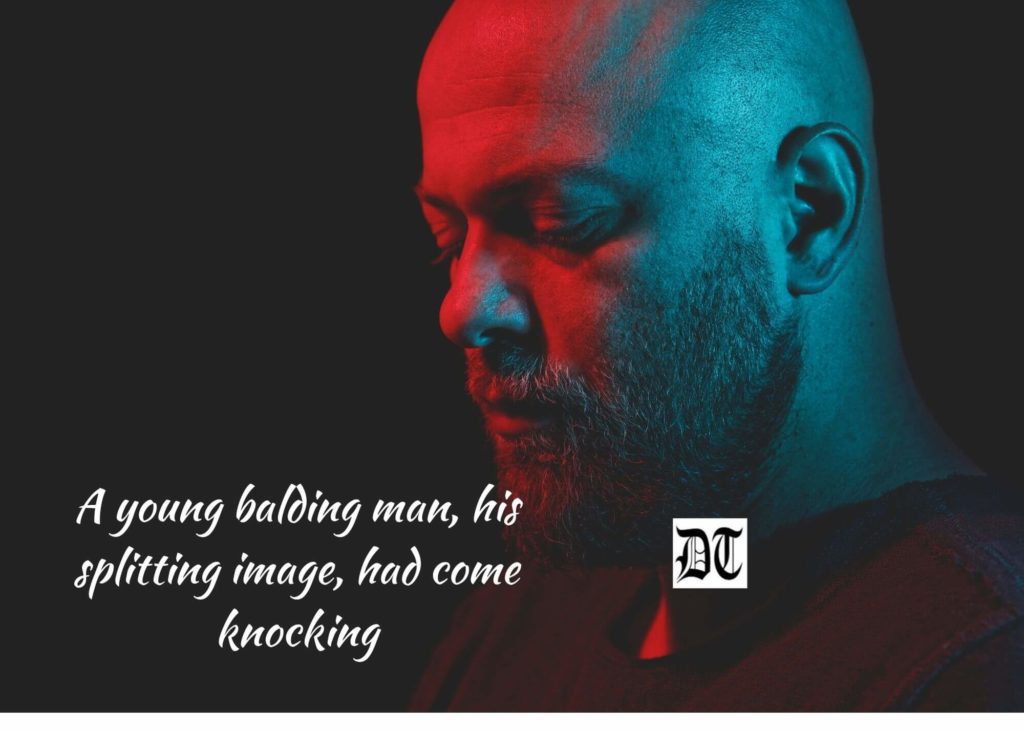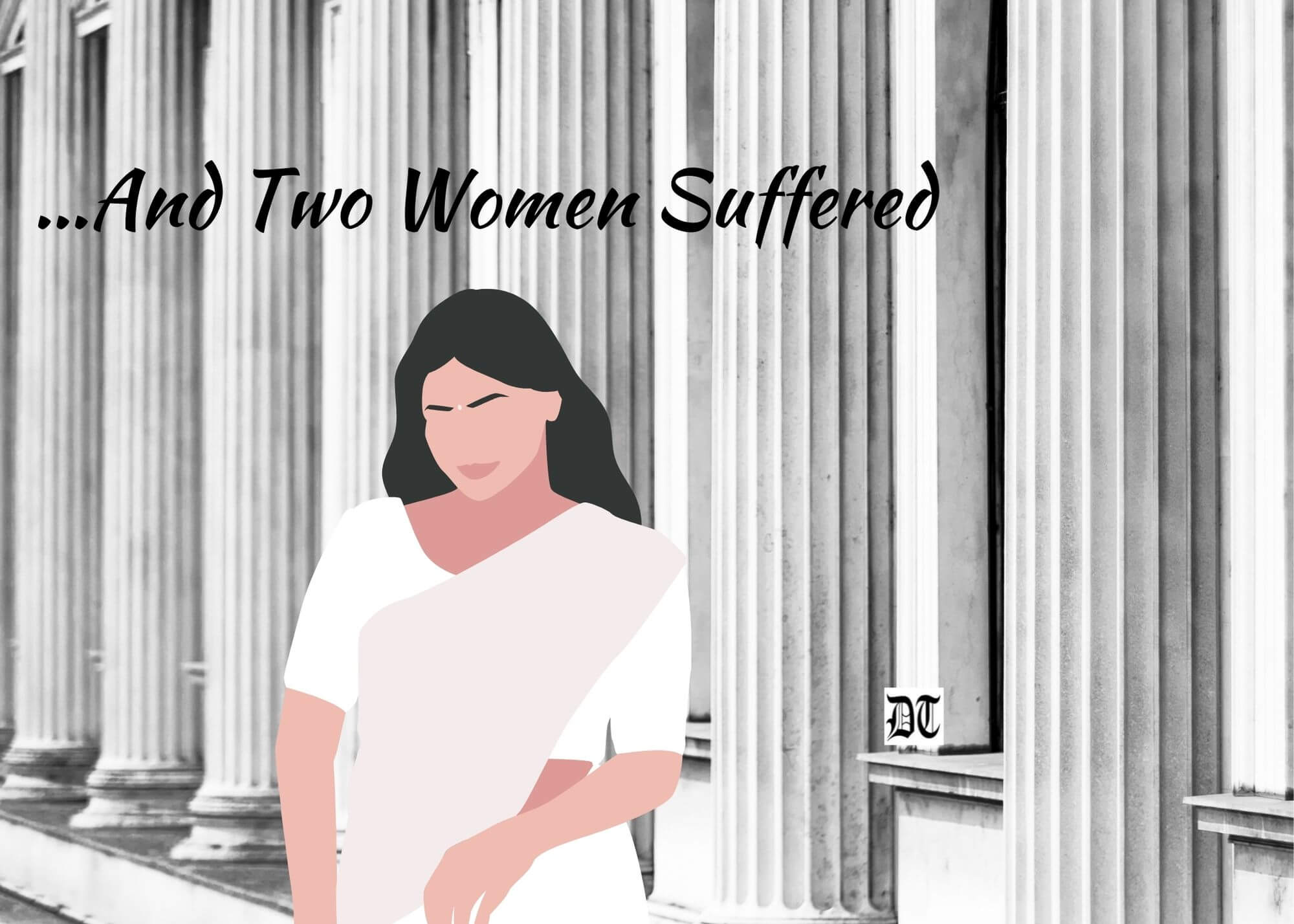She was a slim, tall, elegant woman, too pretty to be a cook in our house, but as she was not very young, my mother kept her immediately. She looked so sophisticated when the van driver brought her from Kolkata where she had been looking for a job and a place to stay. She had a son, who came with her but went away with the van driver after she was appointed. I watched him as he sat eating biscuits dipped in tea with the driver, in the verandah. Shaani was her name. Soon she vanished like the puja holidays. There were secrets in the family. Nisha, a young widow, had inverted her name to Shani. Why was she paid off? Why did she not get her due? Who suffered more, the widow or the wife of the man, who bore his children and lived with him, all her life? The questions become murkier. Find out more about the two women, in the short story by Nilakshi, as a special feature on International Women’s Day (IWD), exclusively for Different Truths.

She always wore a white sari in an ordinary way with the pallu round her waist. And a white longish blouse. And those thin smiling lips of hers were red-red-red, with the paan she always chewed. No ghomta (ghunghat) on her head, she was a slim, tall, elegant woman, too pretty to be a cook in our house, but as she was not very young, my mother kept her immediately. She looked so sophisticated when the van driver brought her from Kolkata where she had been looking for a job and a place to stay. She had a son, who came with her but went away with the van driver after she was appointed. I watched him as he sat eating biscuits dipped in tea with the driver, in the verandah. Shaani was her name, and I thought of her as the most beautiful creature on earth and followed her around like a witch’s minion.
I was six then, and hovered around her in the kitchen and the rest of the house, as my grandfather was away at Kolkata. My mother let me as I didn’t have any siblings back then, and would be out of her hair as I asked way too many questions. So Shaani sat me next to her on the kitchen shelves where she cooked and I swung my legs, as I asked her a hundred thousand questions about what she was doing with the vegetables and why. I sometimes threw in a shot or two about her personal life… not knowing the clear boundaries but mentally noting my mother’s raised eyebrows. I knew that shape so well!
But after a day or two of lovely cooking, the sickly sweet aroma of her paan masala ceased to waft around the room. I missed the little red bits of supari she gave me to chew, and the ilaichi and saunf she put on her paan like my grandfather. The thin navy blue or green border of her white sari was no longer to be seen. I had been to school and my mother looked away, as she answered me, “Yes, she has gone,” and “No, she will not come back.” The staccato, the clipped tone, and the averted gaze told me quite well that no further elaboration was forthcoming nor was encouraged. I must have cupped my cheeks in my palms, and with my folded elbows resting on my knees, sat rocking off and on, waiting for my old friend the dear deaf, old, cook with a sour temper to return.
At times, carefully looking at my mother’s face as she knitted a scarf or a sweater, I volleyed in my most innocent tone, an enquiry or two about Shaani, who had come and gone as quick as the sun in the wet months of rain. Where did she go? Will she find work? Where will she stay? Will she return someday … and my mother quietened me by that icy look I knew so well, which told me “enough”, even though the deaf, old cook was, well, deaf. Yes, she was around as she did return and shouted and raged for a few days. The air in the kitchen was heavy, and somehow my grandfather was unhappy too, as he returned, a little untimely, from Kolkata. There were hushed conversations between the three adults … my parents and grandfather…. possibly about the sourpuss, the old cook, and her rants. I forgot about Shaani in no time. She had disappeared like the puja holidays do, in no time.
***
After he lost his wife to childbirth, Shashikant brought a young widow Nisha from his village to cook for his eight children and himself living in Kolkata. She cooked very well and was like an older sister to his daughters. She stayed in the room on the mezzanine floor, and helped mend and sew along with cooking. After a few months she went back to the village. For a holiday, apparently. But she did not return for a few days and Shashikant had to go back to the village, taking leave, and arrange to get her back.
She didn’t return. Instead, he came back crestfallen, accepting the blame the villagers laid squarely on his shoulders. Nisha was carrying his child. He arranged to have her deliver at his brother’s hospital. He took charge of the matter quite like the true gentleman, setting a large sum of money on the woman and her child, who started living in the slums in some corner of the city.
***
Years later, Chandrakant, Shashikant’s eldest son had an unknown visitor. A young balding man, his splitting image, had come knocking at his door, begging. He said he didn’t want anything like money from them. He lived in the slums nearby, with his mother, got by quite decently. All he wanted was his name. To add to his.

Chandrakant’s distraught son and daughter were astounded, and pushed and shoved and got him out of the house with threats and insults. They rushed to their uncle who lived away from the city, with their ailing, now almost insensate grandfather, for counsel. The uncle tried his best to give them advice, take a lawyer’s opinion and shield them from this unwanted intrusion into their lives. His wife just covered her face with the pallu of her white sari and cried.
***
Nisha had been widowed early, almost in her teens, and in her youth had been a raving beauty. She had easily entranced Chandrakant, they said. He had succumbed, or might have been the instigator, who knows? As a woman I feel it could have been both ways. Why did he refuse to marry her, why had the two families suppressed the relationship rather than give this widow a new chance in life? Why did they complicate her existence by punishing her to a life in the slum? Cooking, cleaning. Minding children, in other people’s houses as her son sat with his loneliness at home?
Look, I told you, I asked too many questions as a girl… so here I go.
Why did she have to take the name Shaani, inverting the alphabets in her name, and come to our house away from the city, tracking us down, trying to find shelter with us? Did she come to take revenge? Or had she gone to her wits end just trying to give her son his father’s name?
How did my grandfather deal with this calumny all his life? He was a respected schoolmaster in the village, how did he accept the charge levied on him instead of his son? Is that the way with fathers? And mothers? To protect your children, to shield them from harm?
How did Nisha bring her son up all alone? Did she go to spy on her erstwhile lover and his family? How did she then track us down? Was my grandfather wrong? Wasn’t Shaani/Nisha with her betel-stained lips innocent, as white as her saris? Why did my aunt wear white sarees always, since the morning after the first night of her marriage? Was it because my uncle Chandrakant decided to come clean to her right away, and had confessed? How did she bear his two children, looked after him, lived with him all his life?
Who will answer me these questions? Today, fifty years later, I’m still confused…
Isn’t life too complicated, whether you’re six or fifty-six?
Picture design by Anumita Roy, Different Truths






 By
By
 By
By

 By
By